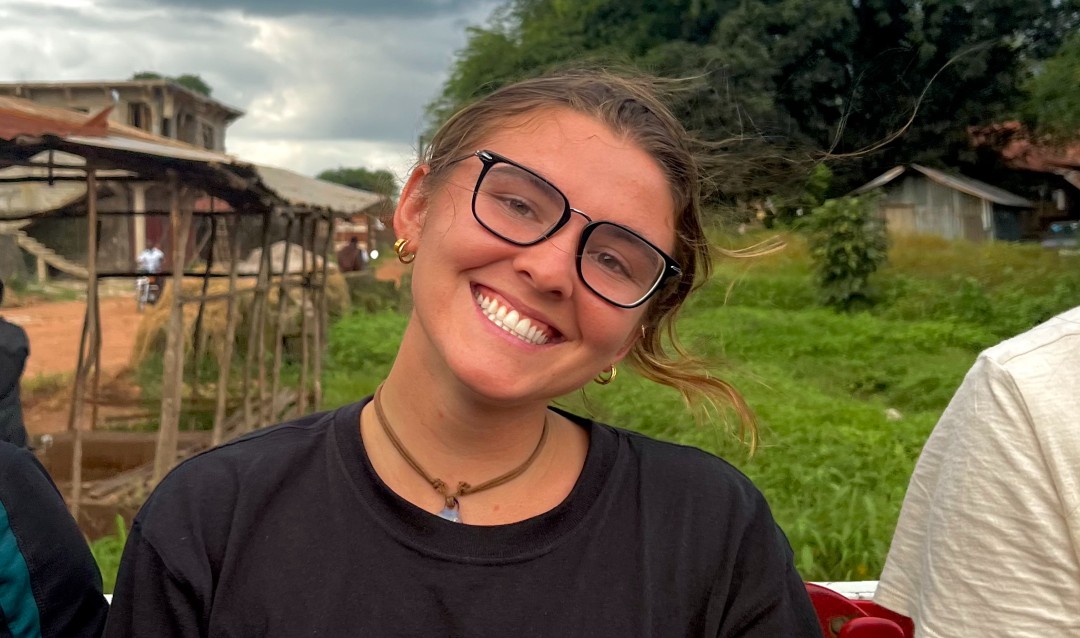Lehigh offers more than 250 study abroad programs in more than 60 countries, providing students with the opportunity to immerse themselves in another culture while pursuing their degree or conducting research. One of these programs is the Mountaintop Summer Experience, an opportunity extended to some Global Social Impact Fellows.
Katie Goettle ‘23 was one of those fellows. She traveled to Sierra Leone for one week this summer to conduct field work for the project SicklED, a sickle cell anemia diagnostic device. She is an IDEAS (Integrated Degree in Engineering, Arts and Science) major with a concentration in bioengineering.
What work were you doing in Sierra Leone?
I am working on a project called SicklED, and our main goal is to create a lateral flow testing device for sickle cell anemia. Our strip would test if someone has sickle cell anemia or has the trait for it. This disorder affects a significant portion of the population in Sierra Leone. If we can test babies when they come out of the womb, you can start treating them, by giving them folic acid, vitamin D and a few other medications. If they start taking them as a child, their life expectancy shoots through the roof.
While in Sierra Leone this summer, we specifically interviewed people from three different groups: people who have the disorder, health care professionals and people unrelated to the first two categories on what they know about sickle cell anemia. We found there is a lot of misinformation and lack of information surrounding it despite the fact that it affects so many people there.
What were people who you met abroad like?
They are very friendly. We were explicitly told by people when we were interviewing them or whenever we would go into a new place, ‘Thank you for coming, we want you here, you're welcome here anytime.’ They would very openly give us their phone numbers or ask us if we needed anything. I still get text messages from the president of one of the universities who we talked to and a police officer who is involved with a peripheral health unit. People were very friendly, open and warm.
What was the most significant moment you experienced in Sierra Leone?
When we interviewed people who have sickle cell anemia or have kids with sickle cell anemia, it took about three hours, for 14 interviews, of us sitting in a really small room, just listening to everything they’ve been through.
This one woman was talking about how she's currently raising two sons who both have sickle cell disease on her own. Her husband left her because he accused her of being a witch and infecting their children, and her parents don't talk to her or help her at all because they also accuse her of being a witch. She's a single mother raising severely ill children. And that's just one example. This other woman told us about how she’s had multiple children die because they had sickle cell disease. We spoke to a girl named Margaret who had to have her leg amputated because of sickle cell anemia.
The amount of pain they're in is brutal, and they don't really have the right medicine or they can only go to certain pharmacies to get medicine because pharmacies will sell you bad drugs. It's so sad how little they know and how little resources they have. A lot of the people we met are very friendly and very grateful for the little things. I feel lucky to live here and have access to everything.
Goettle also traveled to Stockholm, Sweden, for study abroad during the spring semester of her junior year. Read about her story.


